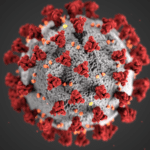Hemorrhoids can be a discomforting and often painful condition that many individuals experience at some point in their lives. One common treatment for hemorrhoids is banding, a minimally invasive procedure that can provide relief. Understanding what to expect after hemorrhoid banding is crucial for those considering or undergoing this procedure.
Hemorrhoid Banding Post Care
After the hemorrhoid banding procedure, it's common to experience some discomfort or mild pain. This is typically manageable with over-the-counter pain relievers recommended by your healthcare provider. The immediate hemorrhoid banding post-banding period may involve a feeling of fullness or pressure in the rectum. While the discomfort is expected, any severe pain should be reported to your healthcare provider promptly. To ensure a smooth recovery, consider the following tips.
Hydration and Diet After Hemorrhoid Banding
Following hemorrhoid banding, maintaining a healthy diet is essential. Consume a high-fiber diet to prevent constipation, which can exacerbate hemorrhoid symptoms. Adequate hydration is crucial to soften stools, making bowel movements more comfortable. Fiber-rich foods include fruits, vegetables, whole grains, and legumes. Additionally, drinking plenty of water helps prevent dehydration and aids in the overall digestive process.
Managing Pain and Discomfort
Your healthcare provider may prescribe pain medication or recommend over-the-counter options to manage pain during the recovery period. Applying ice packs to the affected area can help reduce swelling and provide relief. It's important to follow the prescribed dosage of any medications and not to self-medicate without consulting your healthcare provider.
Changes in Your Bowel Movements
Patients may experience changes in bowel habits after hemorrhoid banding. Avoid straining during bowel movements, as this can increase discomfort and potentially disrupt the healing process. Stool softeners may be recommended to make bowel movements more comfortable. Consider adding foods like prunes or bran to your diet, as they can act as natural stool softeners.
Exercise After Hemorrhoid Banding
While rest is important in the initial days following the procedure, light physical activity is encouraged. Gentle exercises, such as walking, can aid in promoting blood circulation and preventing complications. However, it's crucial to avoid strenuous activities that may strain the rectal area. Consult with your healthcare provider to determine when it's appropriate to resume more vigorous exercises after hemorrhoid banding.
Follow-Up Appointments
Patients are typically scheduled for follow-up appointments with their healthcare providers to monitor the healing process and address any concerns. During these appointments, your provider may assess the success of the banding procedure and provide additional guidance on post-treatment care. It's essential to attend these follow-up appointments as they play a crucial role in ensuring a smooth recovery.
Recovery Timeline
The recovery timeline can vary from person to person. Most individuals can resume their normal activities within a few days to a week after the procedure. However, complete healing may take several weeks. It's crucial to follow your healthcare provider's instructions for a successful recovery. If you have concerns about the pace of your recovery or experience unexpected symptoms, contact your healthcare provider for guidance.
Long-Term Care
To prevent the recurrence of hemorrhoids, maintaining a healthy lifestyle is essential. This includes a balanced diet rich in fiber, staying hydrated, and avoiding prolonged periods of sitting or straining during bowel movements. Regular exercise can also contribute to overall colon health. If you have a sedentary job, make a conscious effort to stand and stretch periodically to promote good circulation.
Potential Side Effects
While hemorrhoid banding is generally considered safe, some individuals may experience side effects. These can include bleeding, mild pain, or the passage of mucus. It's important to report any unusual or severe symptoms to your healthcare provider promptly. Keep in mind that these side effects are usually temporary and should subside as the healing process progresses.
When to Seek Medical Attention After Hemorrhoid Banding
Following hemorrhoid banding, it is common to experience mild discomfort, which is considered a normal part of the recovery process. However, it is crucial to remain vigilant for signs of potential complications. While mild discomfort can be managed with over-the-counter pain relievers and is expected to improve gradually, there are specific symptoms that warrant immediate medical attention. If you encounter severe pain that surpasses the expected level of post-banding discomfort, persistent bleeding that goes beyond minor spotting, or any other concerning symptoms such as increased swelling or signs of infection, it is important to seek medical attention.
Learn What To Expect After Hemorrhoid Banding with Northeast Digestive
Understanding what to expect after hemorrhoid banding is essential for individuals considering or undergoing this procedure. While the recovery process may involve some discomfort, following your healthcare provider's instructions and adopting a healthy lifestyle can contribute to a successful and smooth recovery. Northeast Digestive brings you expert hemorrhoid banding services for a life of comfort. Take charge of your well-being, and call us today and schedule a consultation with one of our specialists. Your path to relief and rejuvenation awaits!




